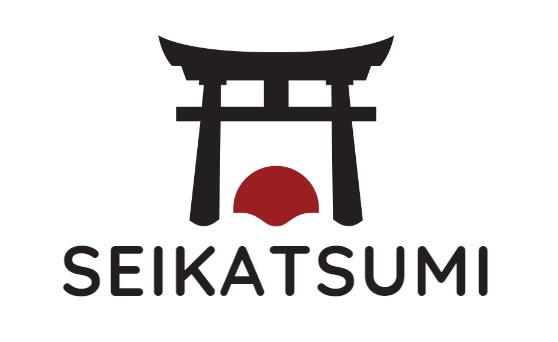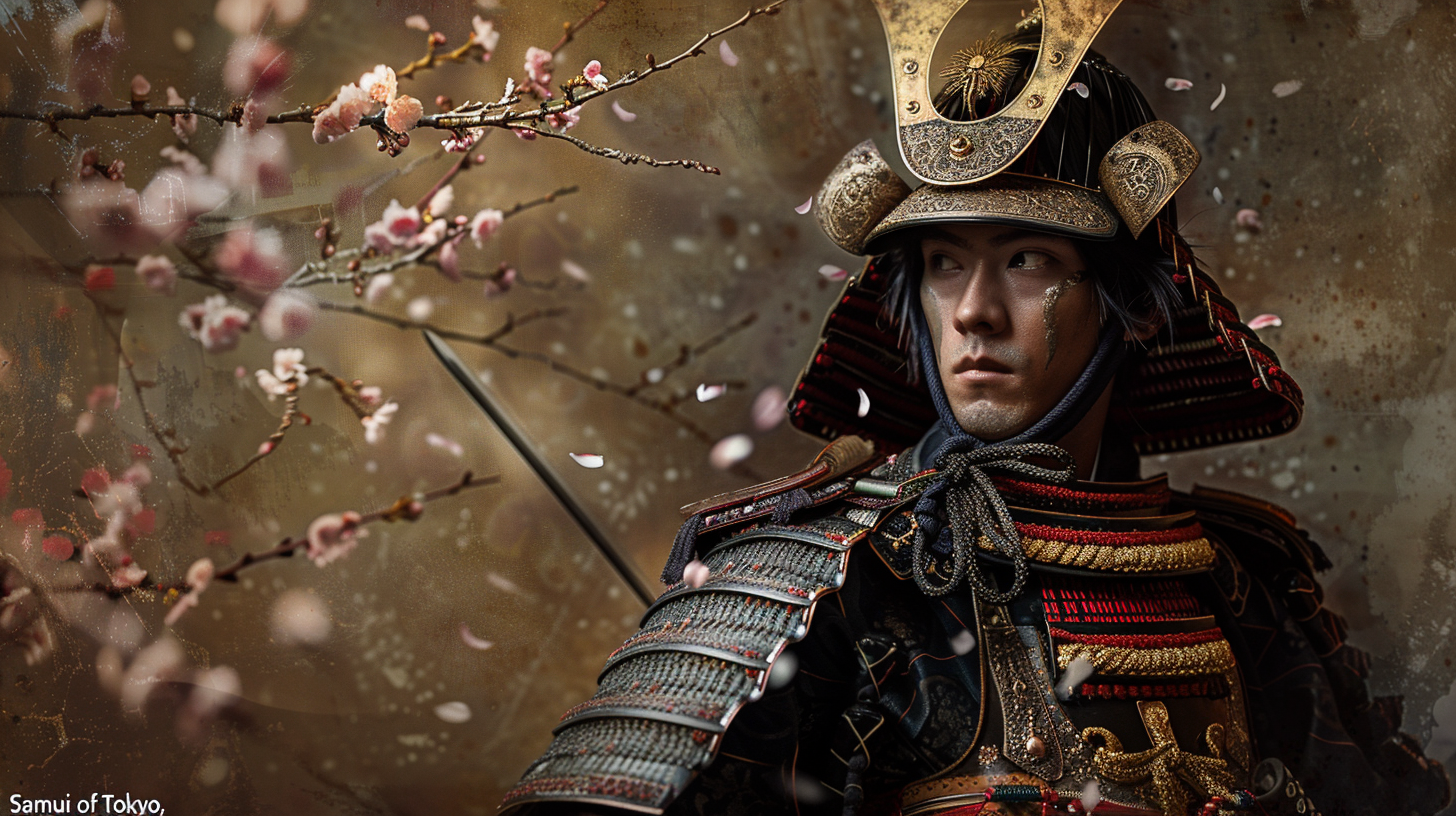Are you fascinated by the legendary Samurai of Tokyo and their rich history? You’re definitely not alone; I’m captivated by them too!
Understanding the complex history and culture of these esteemed warriors can be a real journey. That’s precisely why I’ve dedicated myself to exploring and unraveling the stories of the Samurai of Tokyo.
I can’t wait for you to join me on this journey into the past. Exploring the history of the Samurai of Tokyo isn’t just about learning facts; it’s about connecting with a pivotal part of Japan’s heritage.
So, are you ready to step back in time and explore the extraordinary world of these legendary warriors?
Let’s embark on this exciting historical adventure together! 🙂
History of Samurai of Tokyo
As I explore the rich history of Tokyo, I cannot help but be fascinated by the samurai warriors who once roamed these streets.
Their legacy lives on in the city’s museums, shrines, and traditions.
Origins and Rise

Samurai, meaning “those who serve,” were originally a class of warriors who served the nobility in Japan.
They emerged in the 12th century and rose to power in the 16th century during the Sengoku period, a time of civil war and political upheaval.
The samurai of tokyo were skilled in combat and adhered to a strict code of honor called bushido.
Tokyo, then known as Edo, became the center of samurai of tokyo power during the Edo period (1603-1868). The Tokugawa shogunate, a powerful military government, ruled Japan from Edo and relied heavily on the samurai for their military prowess.
Samurai of tokyo were granted land and wealth in exchange for their loyalty to the shogunate.
Edo Period Dominance

During the Edo period, samurai culture flourished in Tokyo. Samurai were not just warriors, but also scholars, poets, and artists.
They practiced calligraphy, tea ceremony, and flower arrangement, and their influence can still be seen in these traditional arts today.
Samurai of tokyo were also responsible for maintaining law and order in Edo. They patrolled the streets, enforced curfews, and punished criminals.
The samurai’s strict adherence to bushido made them respected and feared by the common people.
Meiji Restoration Decline

The Meiji Restoration of 1868 marked the end of samurai of tokyo dominance in Tokyo. The shogunate was overthrown, and Japan underwent a period of modernization and Westernization.
The samurai were stripped of their privileges and became obsolete in the new era.
Today, the legacy of samurai of tokyo can still be seen in Tokyo’s museums and cultural attractions. The Samurai Museum in Shinjuku showcases the history and weapons of samurai, while the Yasukuni Shrine honors the samurai who died in battle.
The samurai may be gone, but their spirit lives on in Tokyo.
Hey you! Are you interested in more history? Then be sure to check out our top articles! You definitely can’t miss it!
90s Japanese Fashion: A Nostalgic Trip Down Memory Lane 2024
Japanese Traditional Clothes Men: The Best Timeless Fashion Of Japan In 2024
Samurai Culture and Traditions
As I explore Tokyo, I can’t help but immerse myself in the rich history and culture of the city.
One of the most fascinating aspects of Tokyo’s past is the samurai culture. Samurai of tokyo were the military nobility of pre-industrial Japan, and their traditions have developed over more than a millennium.
Here are some of the various aspects of samurai culture and traditions that have left a lasting impact on Japanese society:
Bushido: The Samurai of Tokyo Code

Bushido, or “the way of the warrior,” is the unwritten and unspoken code of the samurai that emphasized frugality, loyalty, martial arts mastery, and honor unto death.
The samurai code was influenced by various sources such as Buddhism, Zen, Confucianism, and Shinto.
The code dictated that the samurai should live a life of discipline, courage, and self-sacrifice.
The samurai of tokyo would follow this code to the letter, even if it meant taking their own life to preserve their honor.
Arts and Education
Samurai culture was not just restricted to the art of war. The samurai were also well-educated and well-versed in various arts such as calligraphy, poetry, and tea ceremonies.
They believed that these arts were essential to their overall development as a person and helped them to achieve a state of calmness and tranquility.
The samurai of tokyo were also known for their swordsmanship, and many of them practiced the art of kendo, a modern Japanese martial art that uses bamboo swords and protective armor.
Rituals and Ceremonies

The samurai of tokyo had many rituals and ceremonies that were an integral part of their culture. One such ceremony was the seppuku, or hara-kiri, which was a form of ritual suicide that was performed by samurai who had committed a serious offense or had failed in their duty.
The ceremony was seen as a way to restore honor to the samurai and their family.
Another important ceremony was the tea ceremony, which was a way for samurai to show their respect for their guests and to demonstrate their appreciation for the simple things in life.
The samurai culture and traditions have left a lasting impact on Japanese society.
Their code of bushido, their dedication to the arts and education, and their many rituals and ceremonies have all contributed to the rich tapestry of Japanese culture.
Iconic Samurai Figures of Tokyo
As a history enthusiast, I am excited to share with you some of the most iconic samurai of tokyo figures.
These warriors, who lived during the feudal period of Japan, have become legendary figures in Japanese history, known for their bravery, loyalty, and martial prowess.
Famous Shoguns

Shoguns were military leaders who held the real power in Japan during the feudal period.
They were appointed by the emperor and ruled the country on his behalf. Tokyo was the seat of power for the Tokugawa Shogunate, which ruled Japan from 1603 to 1868.
Here are some of the most famous shoguns of Tokyo:
- Tokugawa Ieyasu: The founder of the Tokugawa Shogunate, Ieyasu is considered one of the most important figures in Japanese history. He was a skilled general and a shrewd politician, who managed to unite the warring factions of Japan under his rule.
- Tokugawa Yoshimune: The eighth shogun of the Tokugawa Shogunate, Yoshimune is known for his reforms, which helped to stabilize the economy and improve the lives of the common people.
Legendary Ronin

Ronin were samurai of tokyo who had lost their masters, either through death or disgrace, and were left to wander the country as masterless warriors.
They were often portrayed in Japanese literature and movies as heroic figures, who fought for justice and honor.
Here are some of the most famous ronin of Tokyo:
- The 47 Ronin: Perhaps the most famous ronin in Japanese history, the 47 Ronin were a group of samurai who avenged the death of their master, Asano Naganori, by killing his enemy, Kira Yoshinaka. Their story has been retold in countless books, movies, and plays, and is still celebrated in Japan today.
- Miyamoto Musashi: A legendary swordsman and philosopher, Musashi is considered one of the greatest samurai of tokyo of all time. He is said to have fought over 60 duels without ever losing, and his book, “The Book of Five Rings,” is still studied by martial artists today.
Influential Daimyo

Daimyo were feudal lords who ruled over large territories in Japan during the feudal period.
They were responsible for maintaining law and order in their domains, and for providing military service to the shogun.
Here are some of the most influential daimyo of Tokyo:
- Oda Nobunaga: One of the three great unifiers of Japan, Nobunaga was a brilliant military strategist who conquered much of central Japan during the late 16th century. He was known for his ruthlessness and his innovative tactics, which included the use of firearms and cannon.
- Date Masamune: A powerful daimyo who ruled over the Sendai domain in northern Japan, Masamune is known for his bravery and his love of culture. He was a patron of the arts and a collector of rare and exotic items, and is said to have worn a suit of armor made entirely of gold.
These are just a few of the many iconic samurai figures of Tokyo. Their stories are a testament to the enduring legacy of the samurai, and to the rich history of Japan.
Samurai Influence on Modern Tokyo
As I explore Tokyo, I can’t help but notice the impact of the samurai on modern-day Japanese culture.
From literature and media to martial arts and tourism, the samurai of tokyo spirit lives on in Tokyo.
In Literature and Media

The samurai have been a popular subject in Japanese literature and media for centuries. Today, samurai-themed movies, TV shows, and video games continue to captivate audiences around the world.
One such example is the popular Japanese manga and anime series, “Rurouni Kenshin,” which follows the adventures of a former assassin turned wanderer during the Meiji era.
The series has been adapted into live-action movies and even a stage play, showcasing the enduring appeal of the samurai in modern Japanese culture.
Martial Arts Legacy
The samurai were renowned for their martial prowess, and their legacy lives on in modern martial arts practices.
Many martial arts styles, such as Kendo and Iaido, are based on traditional samurai techniques.
These martial arts not only teach self-defense but also promote discipline, respect, and honor – values that were central to the samurai code.
Samurai-Themed Tourism
Tourists flock to Tokyo to experience the city’s rich samurai heritage. Visitors can explore the Edo-Tokyo Museum, which houses a collection of samurai armor and weapons, or visit the Meiji Shrine, a popular tourist destination that honors the Meiji Emperor, who oversaw Japan’s transformation from a feudal society to a modern nation.
Samurai-themed tours and experiences, such as sword-making workshops and samurai costume rentals, are also available for those looking to immerse themselves in the world of the samurai.
As I wander through the streets of Tokyo, I am constantly reminded of the samurai’s enduring influence on modern Japanese culture.
From literature and media to martial arts and tourism, the samurai spirit lives on in the heart of Tokyo.
Preservation of Samurai Heritage
As someone who is fascinated by the rich history of Tokyo’s samurai, I am delighted to see the efforts being made to preserve their heritage.
Through museums, cultural festivals, and educational programs, the legacy of these iconic warriors is being kept alive for future generations to appreciate and learn from.
Museums and Galleries

One of the best ways to experience the world of the samurai is by visiting museums and galleries dedicated to their history and culture.
The Samurai Museum in Shinjuku is a prime example of this, with exhibits showcasing everything from armor and weaponry to the art and philosophy of the samurai.
Other notable museums include the Edo-Tokyo Museum and the Tokyo National Museum, both of which feature extensive collections related to the samurai era.
Cultural Festivals

Another way to immerse oneself in samurai culture is by attending cultural festivals that celebrate their legacy. The Sanno Matsuri, held every other year in Tokyo, is one such festival.
Dating back to the Edo period, it features a procession of mikoshi (portable shrines) and other traditional Japanese elements, including performances by taiko drummers and yabusame (horseback archery) demonstrations.
Educational Programs
For those who want to learn more about the samurai in a structured setting, there are a variety of educational programs available.
The Samurai Experience in Tokyo, for example, offers visitors the chance to dress up in samurai armor and learn about the history and culture of these iconic warriors through hands-on activities.
Meanwhile, universities such as Sophia University and Waseda University offer courses on samurai history and culture for those who want to delve deeper into the subject.
Overall, the preservation of samurai heritage in Tokyo is a testament to the enduring appeal of these legendary warriors.
Whether through museums, festivals, or educational programs, there are many ways to explore and appreciate the rich history and culture of the samurai in Tokyo.
Frequently Asked Questions
What are the Samurai of Tokyo?
The Samurai of Tokyo were historical Japanese warriors known for their military skills and code of honor, prominent in Tokyo’s feudal era.
Can you visit Samurai historical sites in Tokyo?
Yes, there are several historical sites and museums in Tokyo where you can learn about Samurai history and culture.
Are there any modern representations of Samurai in Tokyo?
Modern representations include cultural exhibitions, festivals, and performances in Tokyo that celebrate Samurai heritage.
If you liked this blog article about Samurai of Tokyo, don’t forget to follow us on Pinterest so you don’t miss any more tips.
Let us know, which of the above is your favorite samurai tip!




